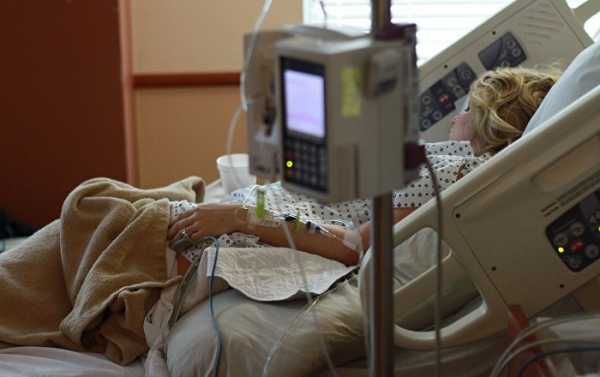
A rare illness that causes muscle weakness and paralysis has been on the uptick in the US recently, with 38 documented cases in 16 states since the beginning of the year. There’s no known treatment for the disease, and the vast majority of the afflicted are children.
Acute flaccid myelitis (AFM) has been compared to polio for its ability to weaken muscles and nerves, attacking the spinal cord, according to the Centers for Disease and Control. However, the disease’s etiology is still unknown, and a wide variety of potential causes have been proposed, ranging from the polio virus — which the US eradicated through vaccines decades ago — to influenza, environmental toxins and West Nile Virus. Epidemiologists aren’t even sure if it’s communicable or not.
One thing, however, is for certain: cases of AFM are becoming more and more common in the US. The CDC first took notice of the disease in 2014, and since then, 362 cases have been documented, 38 of them this year.
In the last few weeks, 14 cases of AFM have been reported in Colorado, six in Minnesota, three in Pennsylvania, eight in Texas and 10 in Illinois. In addition, the New York State Department of Health issued a warning to parents on October 12 that EV-D68, an enterovirus from the same family as polio, had been confirmed in 39 children in the state, noting that in rare instances, the virus can cause AFM, WKBW reported.
While the disease is not directly deadly, it can become so by weakening the patient’s respiratory muscles, the CDC notes.
Pediatrician Dr. Natasha Bergert told Insider that most of the recent reports have shown up about two to three weeks after the child has a viral illness like the flu or the common cold, but that AFM is “still very rare and that the vast, vast majority of kids are going to have these normal cold and flu viruses with no complications.”
Although there isn’t a medicine to take for AFM, hospitals can provide supportive care as doctors monitor bodily functions in case patients require breathing assistance before their bodies begin to fight the infection on their own.
“About half of kids with AFM will strengthen up enough on their own that they won’t require any form of surgical intervention for their nerves. The other half won’t,” Dr. Mitchel Seruya, director of the Brachial Plexus and Peripheral Nerve Center at Children’s Hospital Los Angeles, told CBS News October 11.
For those who don’t, doctors at Children’s Hospital Los Angeles have tried nerve transplants on two children to restore muscle control.
“You have to get in there by eight to 12 months, ideally, to fix the nerve, otherwise the nerve loses its connection to the muscle, and at that point you run the risk of not being able to reverse the paralysis,” Seruya said. A year and a half after the surgery, one girl has regained movement in her previously paralyzed arm but required retraining to use it properly.
Sourse: sputniknews.com






